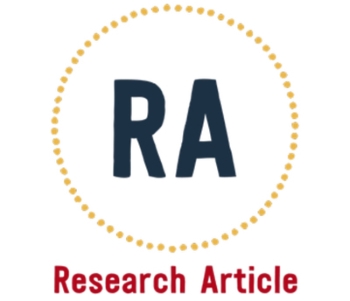Urinary tract infection in urolithiasis: Antimicrobial resistance and clinico-microbiological association between risk factors and positive stone culture from a tertiary care hospital in south India
Authors: Shanmugam Kaliappan, Leela Vajravelu, Thyagarajan Ravinder, Radhika Katragadda and Abirami Lakshmy Jayachandran
Ger. J. Microbiol.
2023.
vol. 3, Iss. 1
pp:1-6
Doi: https://doi.org/10.51585/gjm.2023.1.0020

Abstract:
Urinary tract infections and urolithiasis are common conditions encountered in the healthcare setup. Urinary calculi with infection can lead to recurrence. Isolation of multidrug-resistant (MDR) bacteria is rising and seriously threatens public health. In the present study, a total of 221 urinary calculi and midstream urine samples were collected and processed. Antibiotic susceptibility testing (AST) was performed for all the isolates along with the detection of drug-resistant bacteria like extended-spectrum beta-lactamase (ESBL) producers and methicillin-resistant Staphylococcus aureus (MRSA). ESBL genes, i.e., blaSHV, blaCTX-M, and blaTEM, were identified by Polymerase Chain Reaction (PCR). The significance of the association between age group, gender, risk factors, and positive stone culture was analyzed by the chi-square test. Escherichia coli was the predominant bacteria isolated from 21 (30.88%) of both the midstream urine and urolithiasis samples, followed by Klebsiella pneumoniae 13 (19.11%). High susceptibility was observed for amikacin, nitrofurantoin, and ofloxacin. ESBL-producing bacteria were identified in 25 (36.76%) isolates from urinary calculi and from 46 (39.31%) midstream urine samples. The blaSHV and blaTEM genes were detected among them. MRSA was detected in 9.09% (2 out of 7) of S. aureus isolates recovered from midstream urine samples and 9.09% (1 out of 11) of isolates recovered from urinary calculi. A significant association was observed among cases of diabetes mellitus, hypertension, obesity, and a family history of renal stones (p-value < 0.05). Isolation of MDR bacteria from the calculi is alarming and can lead to treatment failure if not treated appropriately. Performing the culture of the urinary calculi and detecting drug resistance will be of immense value for adequately treating the infection.
Keywords:
Infection stones, MDR, Urinary calculi, Urolithiasis
Statistics:
Article Views: 1024
PDF Download: 72